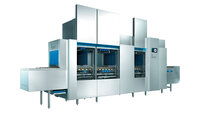1. STUDY THE OPERATING MANUAL CAREFULLY
There’s a reason why the operating manual is included in every equipment purchase – to guide you and your employees on how to correctly and efficiently operate the equipment.
That way, you can reduce human error and inform your employees precisely on what can and cannot be done, especially when it comes to operating the dishwasher.
Don't miss out on the finer details such as the cleaning instructions because different dishwashing machines require the use of different chemical detergents. Not all chemical detergents are created the same.

2. CHECK FOR LEAKS AROUND THE DOOR OR PLUGS INLET AND OUTLET
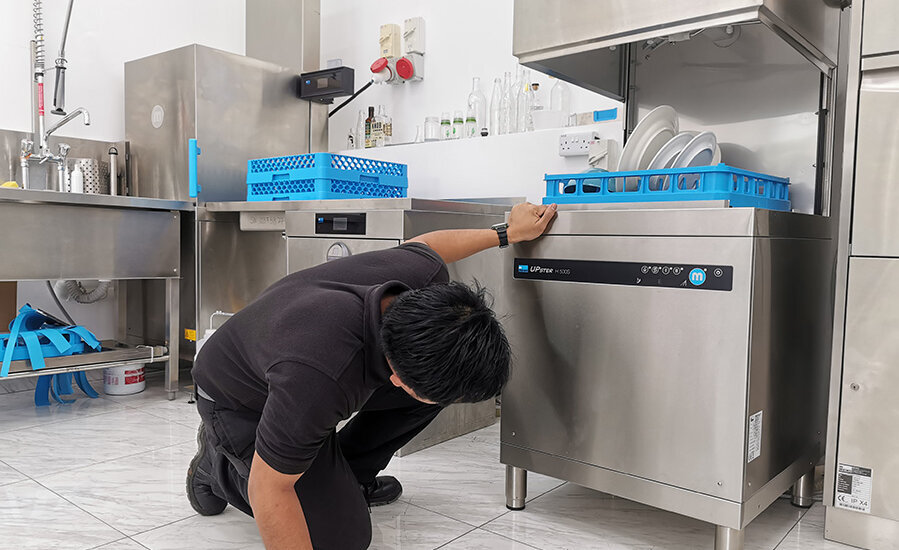
A leaking commercial dishwasher can mean many things – the door gasket’s watertight seal has dried out and become brittle or damaged, the spray arm can’t do its job properly due to improper cleaning, a loose or damaged drain hose isn’t removing water, or the equipment’s water inlet valve isn’t tight enough. If any of these issues persist, they may reduce the efficiency of your equipment.
So, make sure to check for leaks to reduce wastage of water and energy.
3. REMOVE LIMESCALE BUILD-UP REGULARLY
If your water is particularly hard, getting your commercial dishwasher professionally descaled on a regular basis helps to protect the internal components from failing, especially the heating element. Alternatively, you can opt for MEIKO’s built-in water softener called ‘Active Clean’, install a separate softener, or choose a machine with GiO Reverse Osmosiswater treatment, which does not require a softener.
A water softener will remove calcium and magnesium minerals from the wash tank water by using salt as an ion exchange to reduce the build-up of scales which will affect the heating elements and wash arm nozzles.
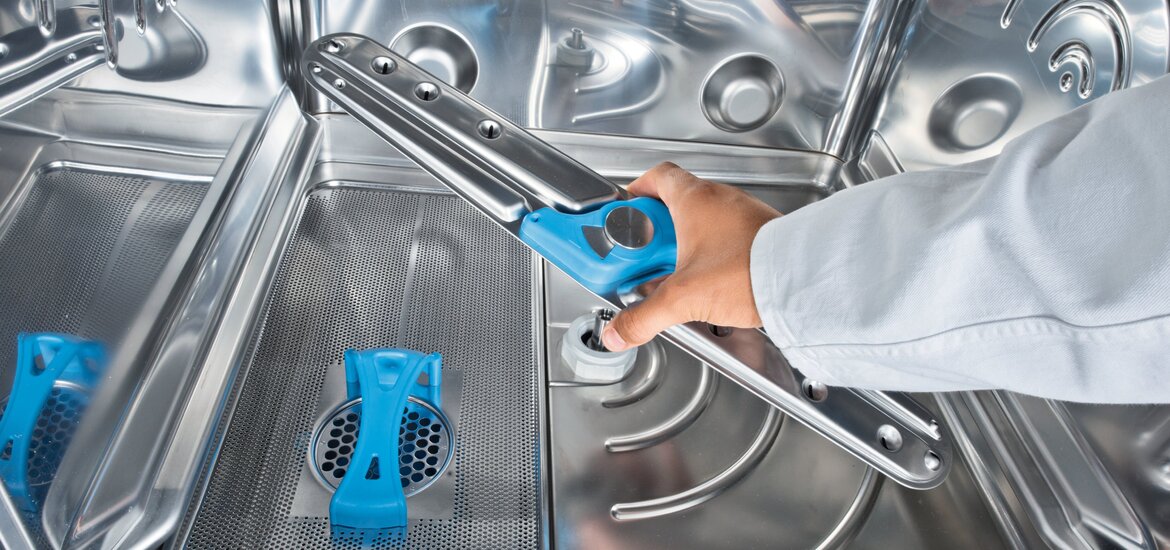
4. CLEAN AND DRY THE MACHINE AFTER THE LAST WASH CYCLE OF THE DAY
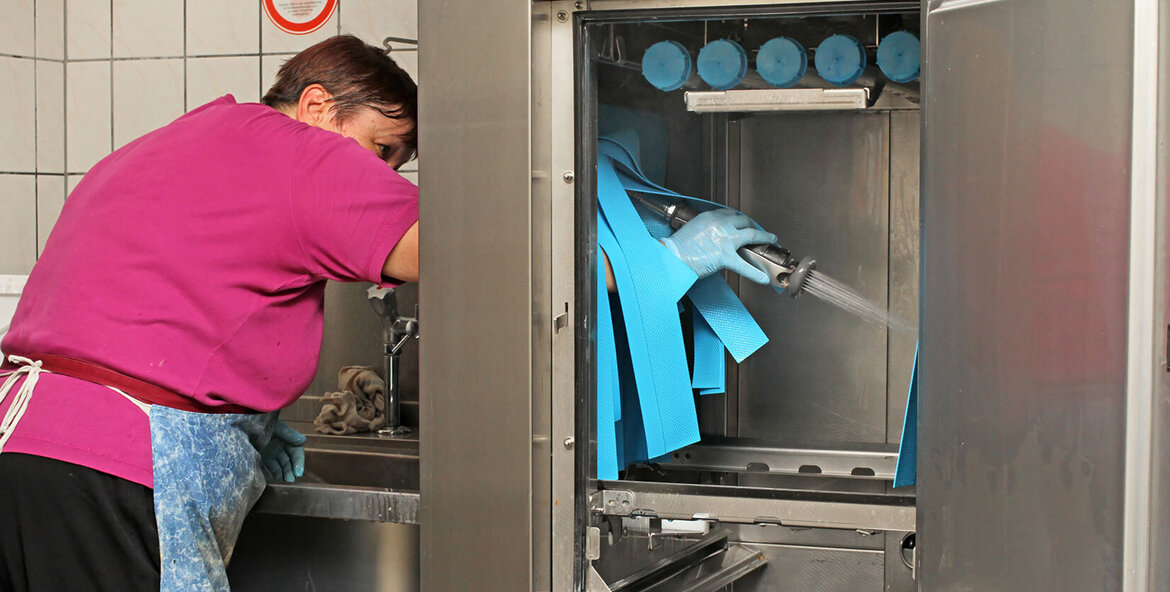
You may have bought a dishwasher that has a self-cleaning programme but the various sieves, filters, wash arms, seals, corners, etc. still need to be washed and rinsed properly.
Besides, it’s important that your dishwashing machine is cleaned and water drained because dirty water can harbour bacteria which could potentially cause health hazards to those operating the machine.
5. CHECK DETERGENT/SANITIZING AGENT SUPPLY
Rinse aid and detergent, are the most important chemicals used by a commercial dishwasher because they help to give you sparkling clean dishes. The presence of too little or too high concentrations of these chemicals on your dishes may cause unwanted results.
Therefore, make sure to check the detergent/sanitizer levels periodically so that they are correctly dosing for the best washing results.
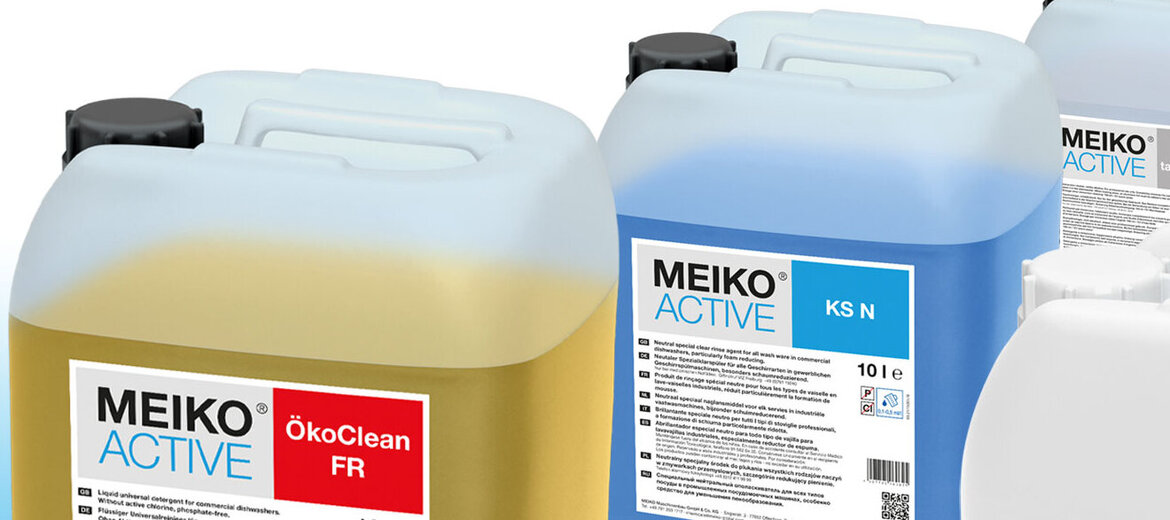
6. SCHEDULE PERIODIC PROFESSIONAL SERVICE

Scheduling periodic professional service maintenance for your commercial dishwasher may seem like a simple task but it is often forgotten for a variety of reasons. Missing equipment servicing can compromise hygiene and degrade the performance of your commercial dishwasher in the long run, preventing it from performing at optimum efficiency and shortening its lifespan.
With MEIKO Connect, which is available for certain MEIKO dishwashing machine models, you can monitor your dishwashing equipment as well as access and record machine- and hygiene-related data through your smartphone. You can also keep up with the maintenance service so that you don't miss out on any of the appointments.
In a nutshell, if you follow these six maintenance tips closely you can prevent your staff from health hazards and keep your business running smoothly. Last but not least you can rest assured that your commercial dishwasher will serve you and your kitchen for many years to come.





